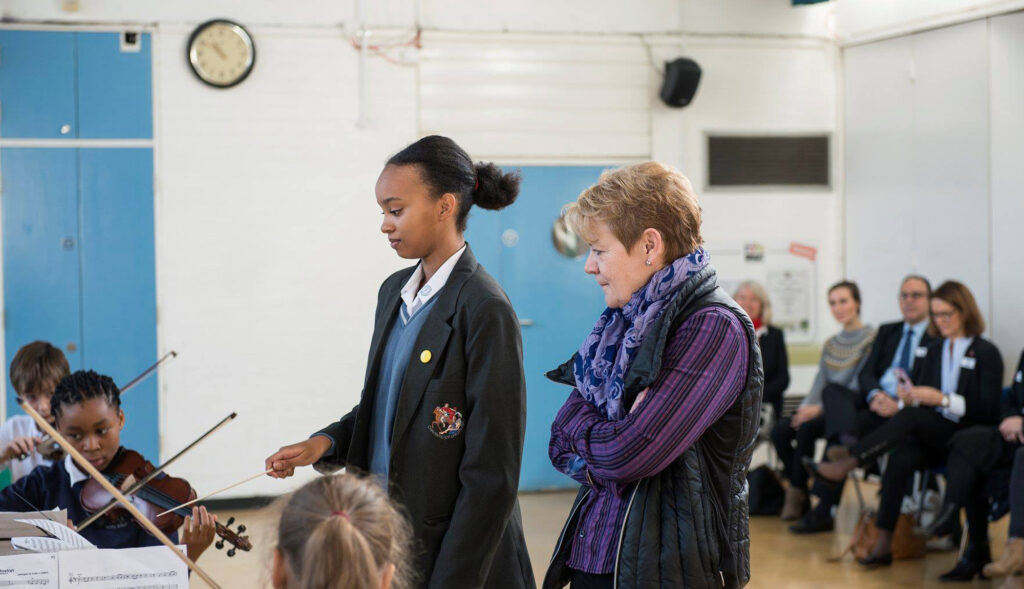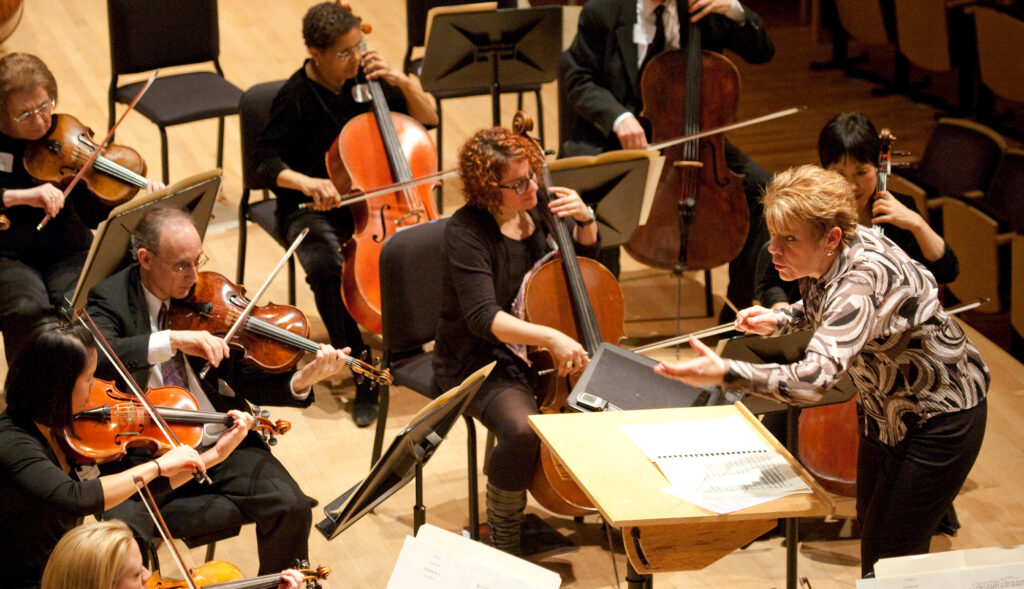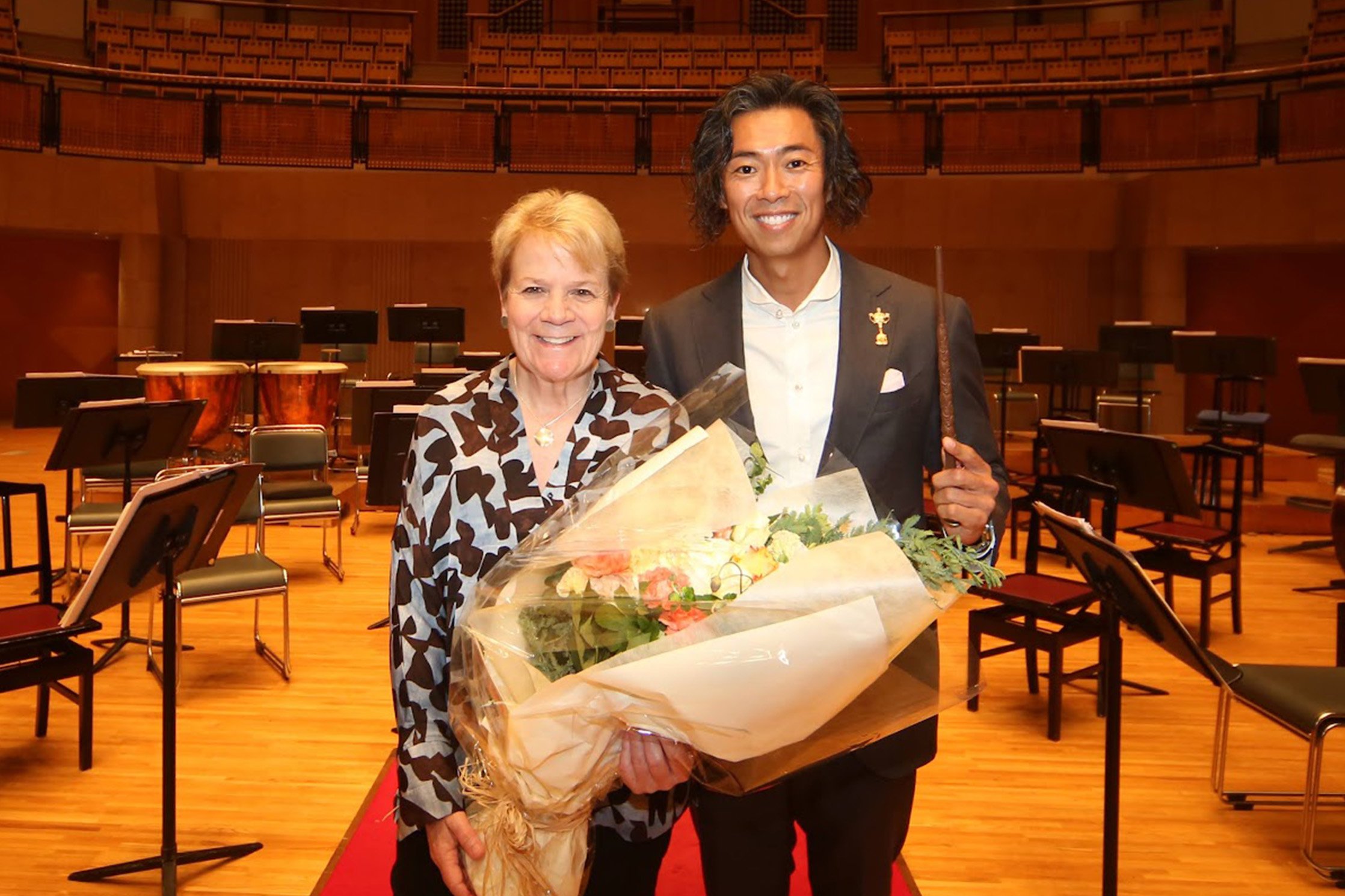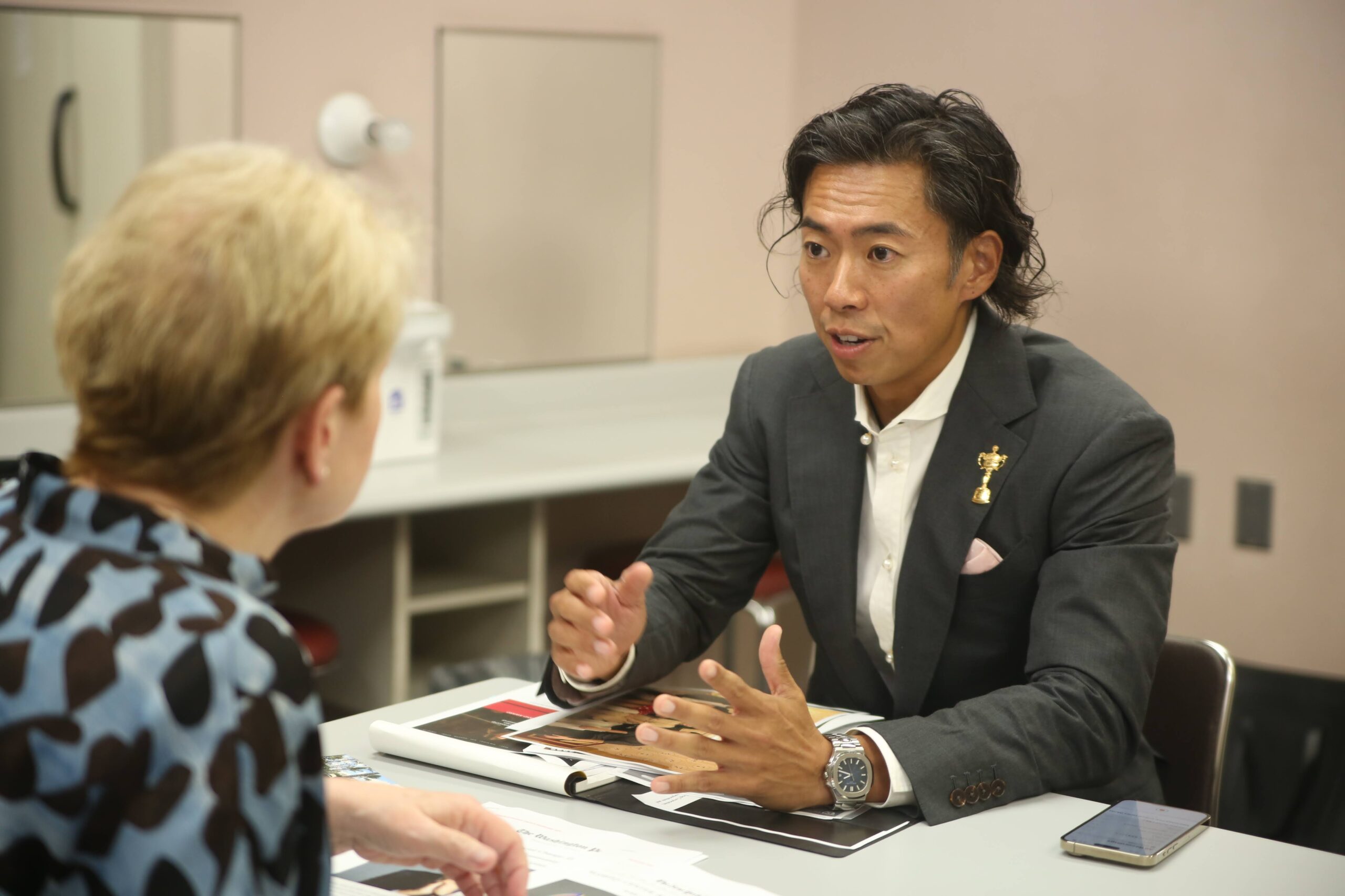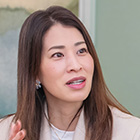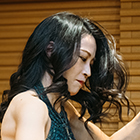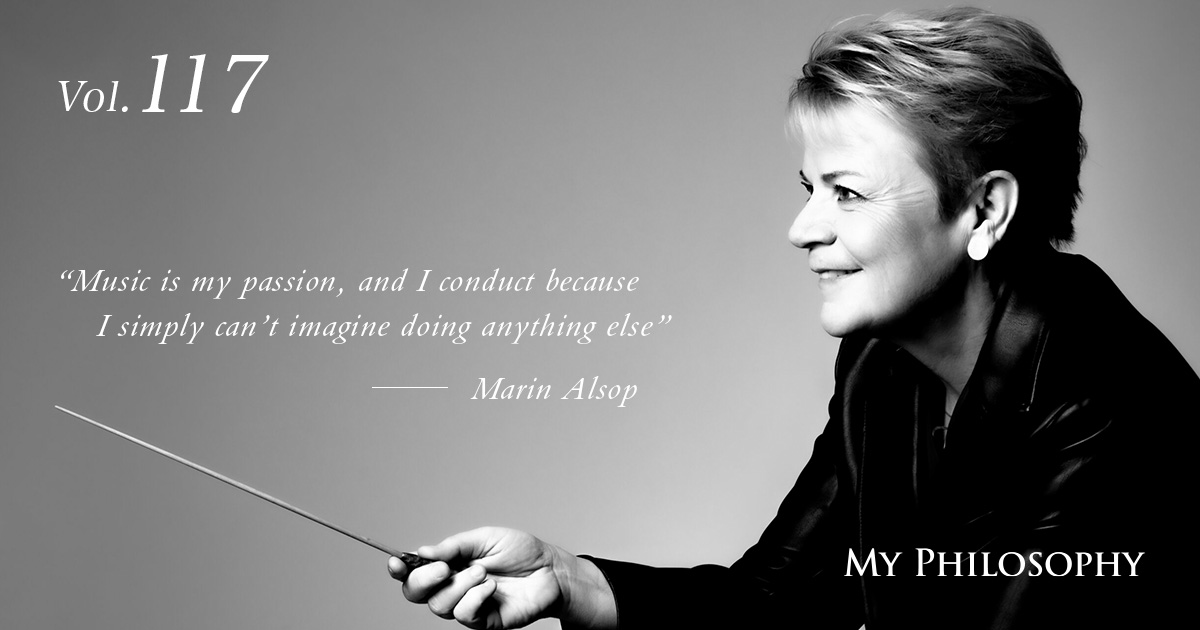
In a male-dominated world of classical music, Marin Alsop broke ground as the first woman to lead a major American orchestra, the Baltimore Symphony. Her journey from an unconventional childhood in a family of professional musicians to becoming a trailblazing conductor was filled with passion, challenges, and the drive to create change. This article explores her upbringing, career-defining moments, and her perspectives on gender, leadership, and the future of classical music.
Profile
Vol.117 Marin Alsop
Conductor
Marin Alsop is one of the most influential conductors of our time, celebrated for her innovative programming and commitment to education. She made history as the first woman to lead major orchestras in the U.S., South America, Austria, and the UK. Known for her powerful musicianship, Alsop is also a dedicated advocate for young talent and gender equality in classical music.
In the 2024-25 season, she continues to lead prestigious ensembles like the ORF Vienna Radio Symphony and Polish National Radio Symphony, while making her debut with the Berlin Philharmonic. Alsop founded the Taki Alsop Conducting Fellowshipto support female conductors and spearheaded projects like "Global Ode to Joy" to expand music’s reach.
Her extensive discography and numerous accolades, including an Emmy-nominated documentary The Conductor, highlight her groundbreaking contributions to the field. Marin Alsop's legacy as a visionary leader continues to inspire musicians and audiences alike.
Growing Up in an Artistic Household

My childhood was anything but ordinary. Raised in Manhattan and later in Westchester, I was the daughter of two accomplished professional musicians.
My father, Lamar Alsop, served as the concertmaster of the New York City Ballet for over 30 years, while my mother, Ruth, was a cellist with the same orchestra for more than 50 years.
Ruth also performed as a cellist at Radio City Music Hall and dedicated many years to teaching music at Brooklyn College and Potsdam University.
In addition to being the concertmaster, Lamar was a multi-instrumentalist, primarily playing the viola but also proficient in the clarinet, saxophone, and violin. He was renowned for his exceptional whistling skills, which added a unique flair to his musical talent.
Our home was an artistic hub where creativity thrived. My father not only played music but also built houses without prior experience, while my mother explored her artistic talents as a cellist, potter, and weaver.
This rich environment profoundly shaped my perspective, instilling in me the belief that anything is possible if you simply take the first step.
From the time I was two, I played the piano, and by five or six, I had taken up the violin. Music was simply a part of who I was. But one of the most pivotal moments came when I was nine years old, sitting in the audience at a Leonard Bernstein concert.His energy, charisma, and passion spoke to me, and from that day forward, I knew I wanted to be a conductor.
Facing Early Obstacles
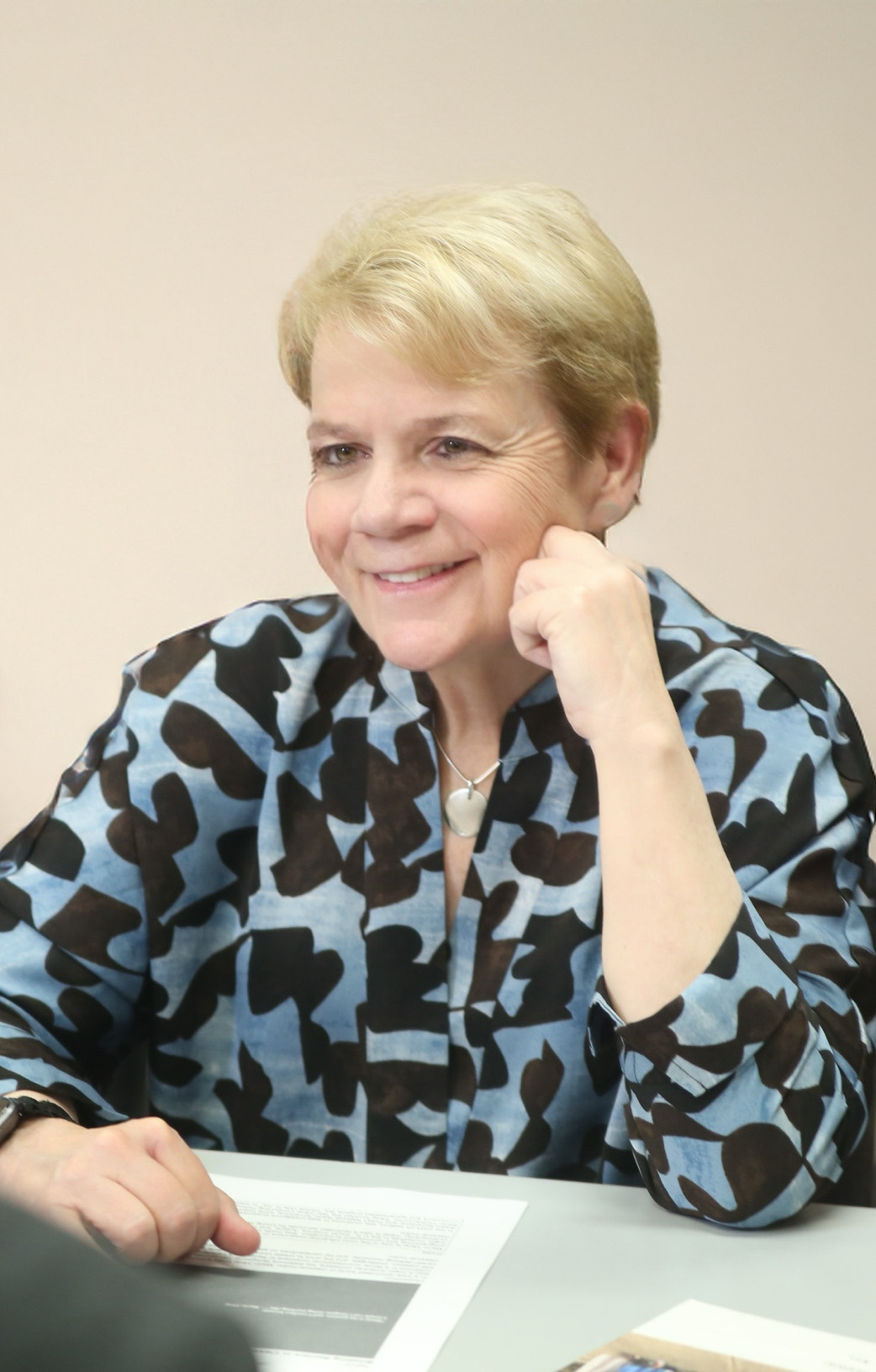
As a young girl with dreams of conducting, I quickly learned that this wasn’t a path many expected women to take. When I told my violin teacher at Juilliard that I wanted to become a conductor, she gave me some shocking advice: “Girls don’t do that.” It was the first time I realized that gender could be seen as a barrier.
I went home and told my mother what the teacher had said, and she was outraged. She told me that I could be anything I wanted, and that support was incredibly validating for me. My father, who was quieter, gave me a box of batons, a gesture I’ll never forget. That mix of vocal encouragement and quiet support from my parents gave me the strength to pursue my dream, no matter what.
Creating My Own Opportunities
Despite my passion, the road to conducting wasn’t easy. In the world of classical music, conductors were predominantly older men, and opportunities for young conductors—especially young women—were scarce. I found myself constantly looking for ways to practice and learn. When I was playing in orchestras, I’d bring along study scores and try to figure out what the conductors were doing. Conducting became this quiet passion of mine, something I knew I had to do, but wasn’t sure how to get started.
Eventually, I realized that if I was going to make this happen, I’d have to create my own opportunities. I began inviting friends over to my apartment for “parties”—though, in reality, they were practice sessions where I’d conduct them through Mozart symphonies. These informal gatherings were my way of figuring out how to lead, how to communicate with musicians, and how to shape the music the way I heard it in my head.
Breaking Through Gender Barriers
The journey to becoming the first woman to lead a major American orchestra wasn’t without its gender challenges. As a conductor, I quickly realized that my gestures were perceived differently because I was a woman. A delicate gesture from me might be seen as “girly” or lightweight, while the same gesture from a man would be interpreted as sensitive and emotional depth. I had to work on neutralizing my gestures to focus on the music and not how I was being perceived as a woman.
I’ve often said that conducting as a woman means you have to think through your gestures twice—once to communicate the music and again to consider how those gestures will be read by your musicians. It adds a layer of complexity to an already challenging art form, but I’ve always believed that we can overcome any barrier with thoughtfulness and hard work.
Leading the Baltimore Symphony Orchestra

In 2007, I had the incredible honor of being appointed the Music Director of the Baltimore Symphony Orchestra. It was a groundbreaking moment, but it wasn’t without its challenges. The orchestra had been struggling financially, their subscriber base had dwindled, and they hadn’t made any recordings in years. On top of that, my appointment was met with controversy from some musicians who publicly questioned my credentials.
I won’t lie—it was a difficult time. At first, it felt like a “hit-and-run accident,” and I wondered if I should walk away. But I believed in the potential of the orchestra and knew that with time and support, we could turn things around. I spoke with the musicians, shared my vision, and eventually, we began to build trust. Now, looking back, I’m so proud of what we’ve accomplished together.
Creating Programs for the Future
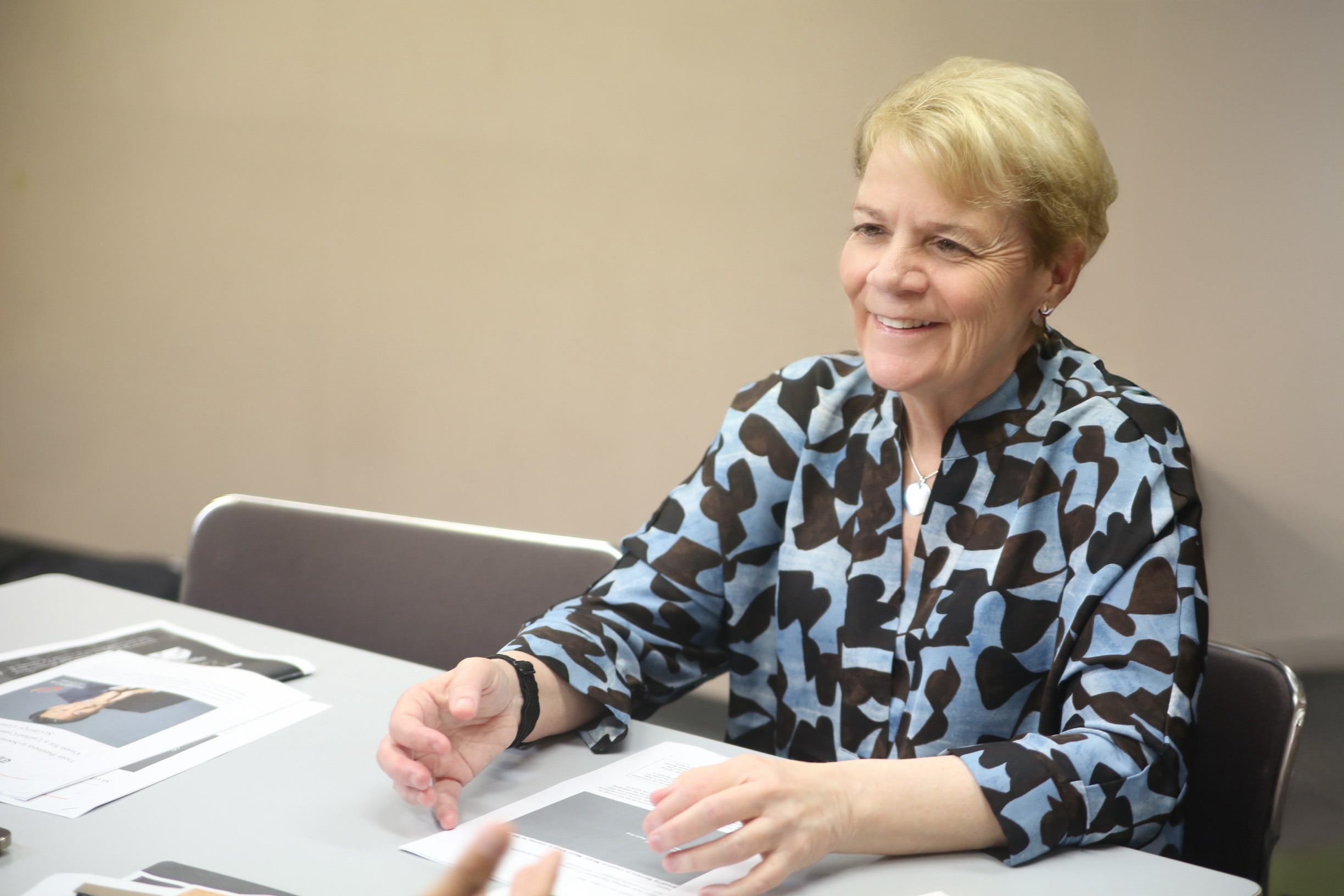
While I’m proud of the musical achievements we’ve made with the Baltimore Symphony, two programs stand out as particularly meaningful to me. The first is OrchKids, an after-school program for children in West Baltimore. These kids, who wouldn’t otherwise have access to musical instruments, now have the opportunity to learn and grow through music. We started with 30 kids, and now we have 300. I hope that in the future, these children will play in major orchestras, reflecting the diversity of our communities.
The second initiative is Rusty Musicians, a program for adults who played instruments as children or who are now amateur musicians. We invite them to play with the Baltimore Symphony, and seeing how much they admire our musicians is incredibly validating for the orchestra. These programs give me hope for the future and remind me of the power of music to transform lives.
A Woman in Leadership
Being a woman in a leadership role in classical music has always felt a bit bittersweet. On one hand, I’m proud to have broken barriers and to serve as a role model for other women. On the other hand, it’s somewhat disheartening that in the 21st century, we’re still having “firsts” for women. When I became the first woman to conduct at La Scala, journalists at the press conference asked me if I could cook, and it was a reminder of how far we still have to go.
But through it all, I’ve remained focused on my passion for conducting. I don’t conduct because I’m a woman—I conduct because I love music, and I can’t imagine doing anything else. Gender has never felt like a barrier to me personally, but I’m aware of how society sometimes views women in leadership roles. That’s why I’ve worked so hard to create opportunities for other women through fellowships and mentorships.
Taki Alsop Conducting Fellowship
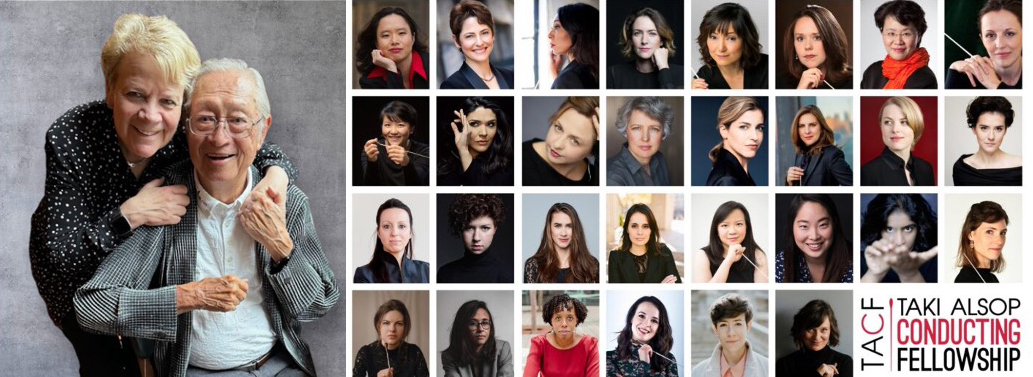
I established the Taki Alsop Conducting Fellowship to empower female conductors in classical music, inspired by the invaluable mentorship I received from Mr. Tomio Taki, a distinguished leader who became president of Takihyo Co., Ltd. at just 26 years old.
He later founded Takihyo Inc. in New York, where he successfully acquired Anne Klein and launched The Donna Karan Company. Currently, he serves as Honorary Advisor at Takihyo Co., Ltd. and holds various esteemed positions in educational and cultural institutions.
His support was crucial in my journey, and I aim to create similar opportunities for future generations of women conductors through the fellowship.
The fellowship’s key objectives include nurturing female talent through mentorship and resources, fostering a supportive network for collaboration and advice, and dismantling gender barriers to promote visibility and leadership in classical music. This initiative inspires young women to pursue their dreams without gender bias.
As I reflect on our progress, I see that we’ve built a wonderful community of women conductors who support each other. They hire one another, advise one another, and now serve as mentors to the next generation. The goal is to create a cycle of mentorship and give back, just as Mr. Taki did for me.
I feel privileged to impact aspiring women conductors and strive to make their journeys easier. My philosophy is: “It was tough for me so that I could make it easier for you,” reflecting Mr. Taki’s unwavering support. Naming the fellowship in his honor acknowledges our shared legacy.
Looking Forward
-
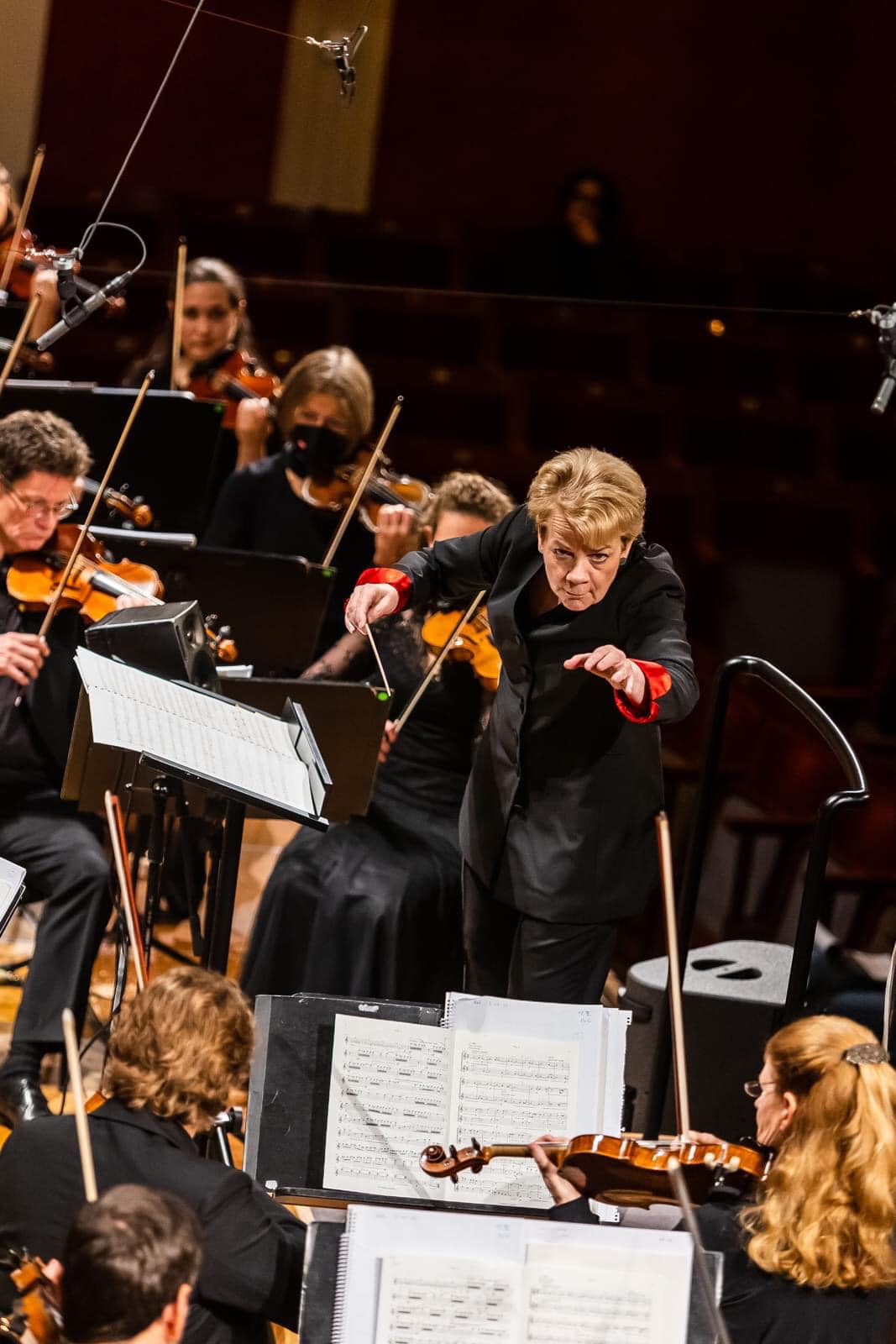
- Photo: Markus Sepperer
As I reflect on my career, I am incredibly grateful for the opportunities I’ve had, yet my focus remains firmly on the future. I aspire to see more women on podiums—not just in classical music but in leadership roles across all fields. It’s essential that we create a world where young women don’t even have to consider whether they can pursue a certain career; it should simply be a given.
I recognize the challenges that many women face in this journey, and that’s why I am committed to fostering a supportive environment where they can thrive. I want to create pathways that allow them to swim past barriers, giving them the opportunity to take risks and, importantly, to fail without the weight of societal expectations. My goal is to make their journeys a little easier and to ensure they have the space to experiment and grow.
I believe passionately in the power of music to transform lives, and I hope to continue breaking down barriers while inspiring the next generation of women to lead with confidence and passion. Every time I step onto the podium, I am reminded of the incredible impact we can have on our communities through music. I feel incredibly lucky to be part of this transformative process and look forward to the possibilities that lie ahead.
It was a true pleasure to meet and be interviewed by DK! His deep understanding of the pathways to a successful life is truly impressive, and his energy is absolutely contagious!
I encourage everyone to support the incredible women of the Taki Alsop Conducting Fellowship.
This global initiative is not only changing the landscape for women in classical music but also inspiring the next generation of female leaders across various fields. Your contributions are vital in helping us nurture talent and dismantle gender barriers in the arts. Remember, all donations are tax-deductible, making it easier for you to make a meaningful impact. Together, let’s empower women to pursue their dreams and create a more inclusive future!
Conductor Marin Alsop

Marin asked me to bring her warm hug to Mr. Taki when I’ll meet him in Hawaii a few days after the interview in Japan, and I was delighted to fulfill her request. Mission accomplished—hug delivered!
In 2017, during my interview with Mr. Tomio Taki for My Philosophy (Vol. 54) , I shared my goal of completing 100 interviews, and he challenged me to think even bigger—encouraging me to aim for 1,000. His words reshaped my vision and fueled my ambition to engage with 1,000 extraordinary individuals before I turn 60.
 We had a wonderful conversation before the concert she conducted, and I was thrilled to enjoy the performance with my second son. As a member of his school’s wind ensemble and a clarinet player, he was overjoyed to experience Marin’s world-class concert.
We had a wonderful conversation before the concert she conducted, and I was thrilled to enjoy the performance with my second son. As a member of his school’s wind ensemble and a clarinet player, he was overjoyed to experience Marin’s world-class concert.
Meeting people and hearing their stories has been one of the most rewarding ways to gain new insights and learn. I am deeply grateful to Marin for her time and to the Taki Alsop Conducting Fellowship for the incredible work they do to support and empower the next generation of conductors. I wish Marin and the foundation continued success in transforming the world of classical music and beyond.
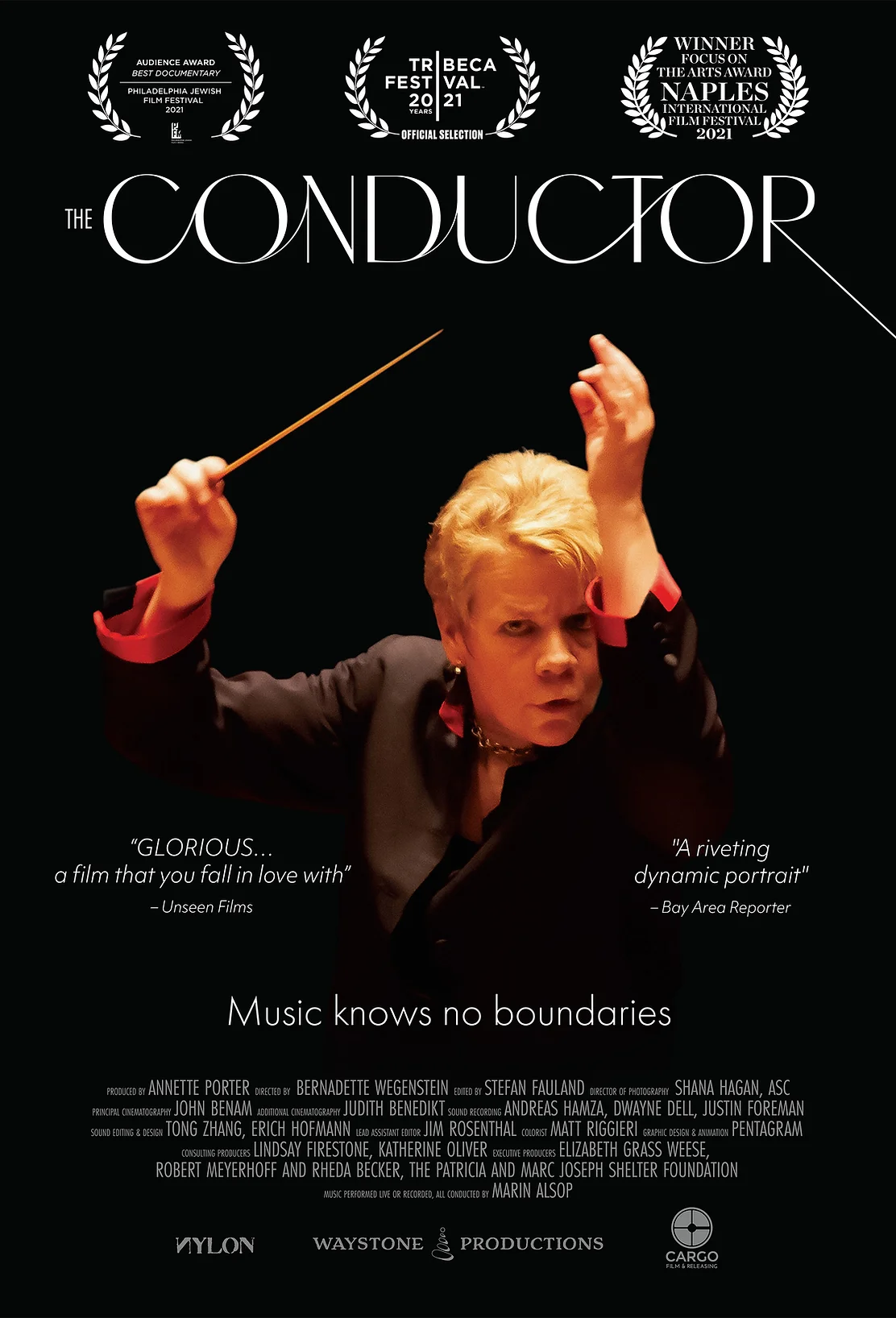
Marin Alsop is a Woman of Firsts
The Conductor takes the audience into the heart of classical music, and into the soul of one of its top artists, the internationally renowned conductor Marin Alsop — the first woman to serve as music director of the Baltimore Symphony Orchestra, the São Paulo Symphony Orchestra, and the Vienna Radio Symphony Orchestra — giving us backstage passes to the artistry and energy that rewards her audiences and inspires her students.
With unprecedented access, the director and film crew accompany Marin Alsop to concerts around the world from Mozart’s Magic Flute in São Paulo, to Mahler’s 1st Symphony in Lucerne, to Bernstein’s Mass in Baltimore, and her opening concert in Vienna.
In spite of rejections from the establishment of classical music and being told “girls can’t do that,” Marin Alsop persisted and never let go of her childhood dream of becoming a conductor. The film features a combination of intimate interviews with the Maestra, a look into her private life, unseen archival footage with her mentor Leonard Bernstein, and Vérité scenes conducting different orchestras and teaching the next wave of conductors who, like her, were being excluded from the classical music canon.
“It’s a glorious portrait of a woman you’ll want to hang out with and talk to for hours. This film is a joy and highly recommended.” – Unseen Films
September 2024, Interviewed at Tokorozawa Civic Cultural Center Muse ARC Hall
Interview and editing by: DK Sugiyama
Project Manager: Chiho Ando
Written by DK Sugiyama
Photography: Erina Hayama





